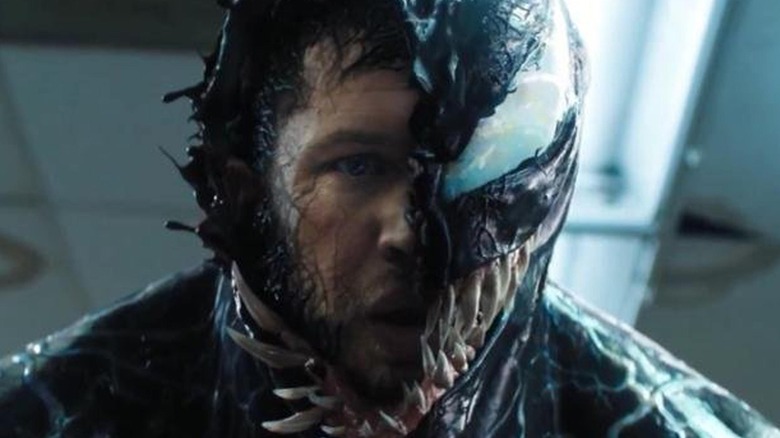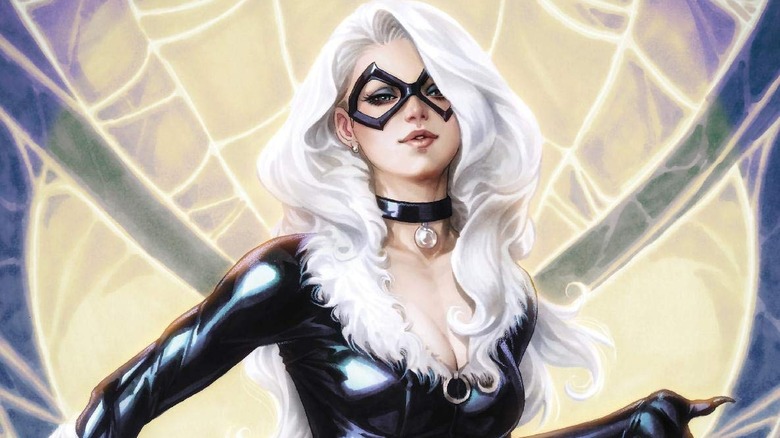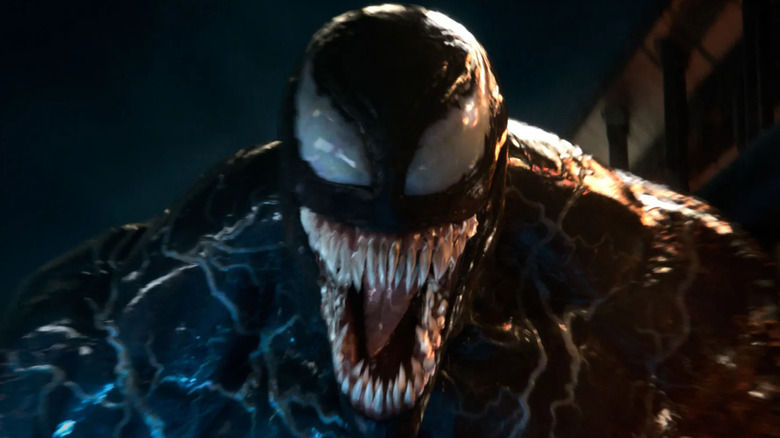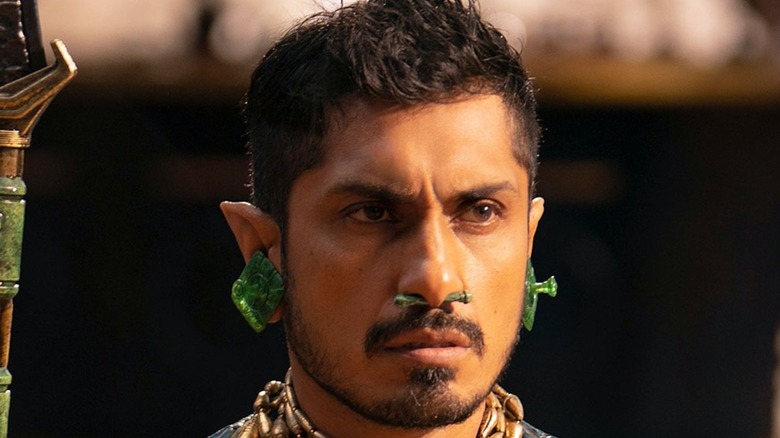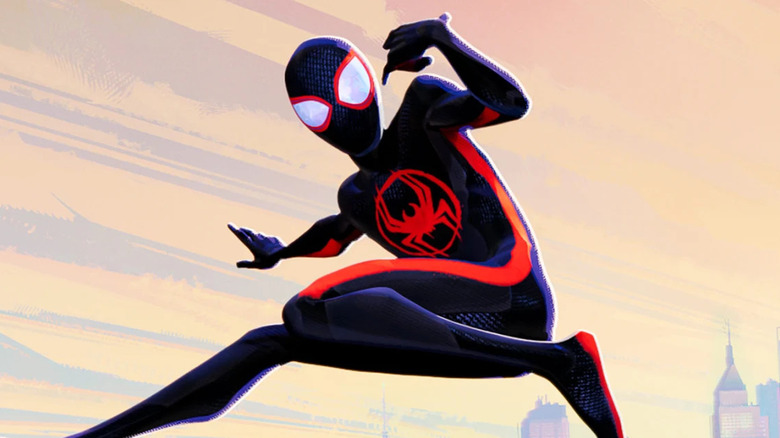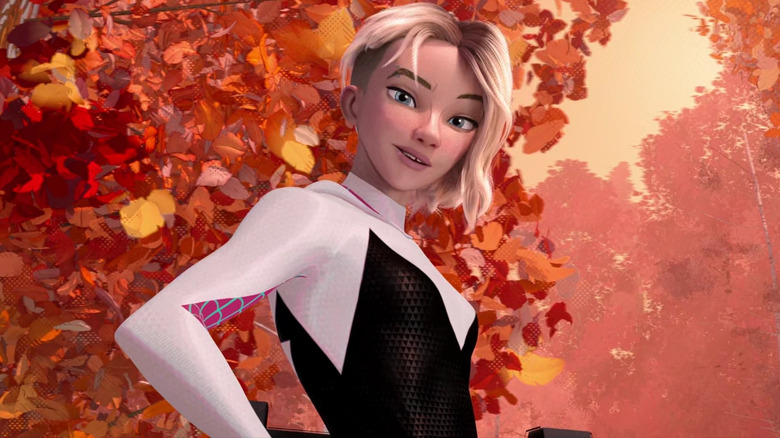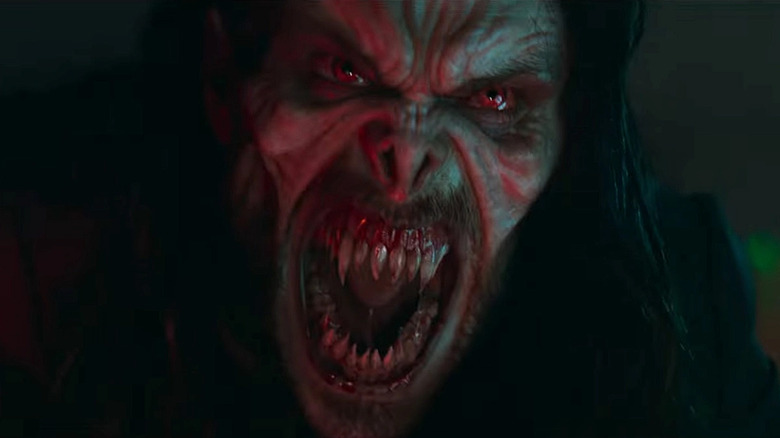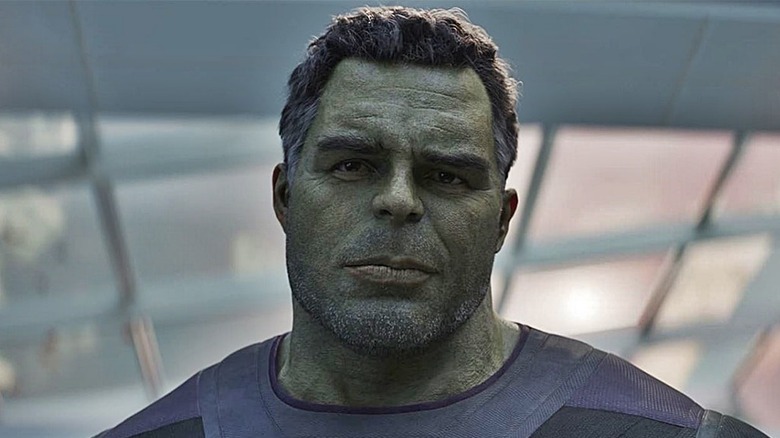Superheroes Marvel Studios Can't Use
So far, the Marvel Cinematic Universe has been an unstoppable media juggernaut. Of course, for the first 11 years or so of its existence, that had to be spelled with a lowercase "j," because the mutant villain Juggernaut was one of many characters the company didn't own the rights to include in their films. That changed in 2019 when Marvel's parent company Disney purchased Fox, along with the many Marvel characters they owned. That acquisition, along with a few other deals, has recently opened up the MCU to a whole multiverse of potential new characters, but there are still many left in legal limbo.
If all of the weird licensing and distribution issues surrounding superhero cinema aren't already making you dizzy, the constant output of superhero movies from other studios certainly will. Fortunately, you don't need your own legal degrees like Matt Murdock or Jen Walters in order to figure out who belongs to whom — we're here to help sort it all out with this handy guide.
Black Cat
Given her bad-luck-inducing superpower, it's pretty ironic that Felicia Hardy, aka the Black Cat, may just have the worst luck of any Marvel character when it comes to the movies. She's been a major character in the Spider-Man comics, and to some extent, Marvel comics in general, since the '80s, but hasn't shown up in a single film yet (aside from a minor role in "The Amazing Spider-Man 2" and even then, merely as Hardy — superpower- and feline-alias-free).
Unlike Spider-Man, Black Cat has never won herself a spot in the MCU proper, and therefore never had the chance to show off her unique brand of roguish charisma alongside potentially excellent foils as Daredevil and Tony Stark (with whom she has co-starred in their own series, "Iron Cat"). Even worse for everyone's favorite cat-burglar, the company who owns her film rights, Sony, hasn't even given her the same treatment as Venom, another supporting Spider-frenemy, and granted her own solo Sony-verse film. Her bad luck runs even deeper, as she was originally planned to appear in Sam Raimi's fourth Spider-Man, which was canceled, and then to co-star alongside the Silver Sable in "Silver & Black," another Sony film that was ultimately canceled.
Venom
Sony kept Venom off the big screen for years following his underwhelming debut in Spider-Man 3, but luckily, he returned in 2018's standalone feature "Venom" and its sequel "Venom: Let There Be Carnage." Yet despite his long-anticipated revival on the big screen, the lethal protector's rights are still firmly in the hands of Sony, who has used the character as one of the tent poles to its own Sony Spider-verse. This is a shame, really. Getting the rights to Venom would give the MCU the rights to the symbiote, too, which means very versatile storytelling potential.
Many casual fans think of Venom as Eddie Brock, the journalist-turned-villain who sometimes takes a turn as an antihero. But the symbiote has also bonded with Mac Gargan, also known as the Scorpion (another Spidey villain), who's worked with the Avengers as part of the Thunderbolts (pretty much Marvel's version of the Suicide Squad). Later, the symbiote bonded with Peter Parker's old frenemy Flash Thompson, and he used it to help the military — and, even the Guardians of the Galaxy — in various adventures. Through all these hosts and stories, Venom has gained greater prominence in the comics over the years, but for now at least, we won't be able to see his collaborations with our favorite MCU heroes and villains onscreen.
Namor
It may come as a surprise to MCU fans to hear that Namor, the Sub-Mariner and King of Atlantis/Talokan, is not firmly in the hands of Disney and Marvel Studios, especially considering his appearance in 2022's "Black Panther: Wakanda Forever." Nonetheless, it is true: Marvel and Disney are unable to release a solo film for Namor, or even feature him in marketing by himself. Their only option is to feature him in another character's franchise, which is exactly why his MCU debut came in a Black Panther film (in addition to the two characters' long and storied history together).
The complicated situation was explained by "Black Panther: Wakanda Forever" producer Nate Moore to The Wrap, though its details may not make the royal waters any less muddy. Universal still has the rights to Namor — a fact confirmed in the past by MCU architect Kevin Feige — but that only pertains to his solo films and marketing — he can't appear in promotional posters, for example, unless they're part of a larger series containing more characters. He can, however, appear in any marketing and any films that star other characters. According to Moore, the odd arrangement "honestly affects us more... in how we market the film than it does how we use him in the film."
Miles Morales
The 2018 animated feature "Spider-Man: Into the Spider-Verse" was a phenomenal critical and commercial success, and transformed Miles Morales from a semi-popular character among comic book readers into an almost household name. The movie was immediately green-lit for two sequels, "Across the Spider-Verse" and "Beyond the Spider-Verse," as well as a female-led spinoff (per Vanity Fair), all of which are sure to make mountains of money for Sony, and Sony only.
Like his mentor Parker, the rights to Morales' on-screen appearances belong to Sony, but unlike Parker, Sony has yet to agree to any sort of partnership that would bring the young hero into the MCU proper. Morales' star has risen steeply in recent years, in his comics, video games, and film, and the issue of his ownership is a significant one. On the one hand, Morales only exists at Sony as an animated character, and one independent from its fledgling Sony-verse, so allowing Disney to produce their own wholly separate, live-action Morales seems entirely possible. On the other hand, the almost $400 million and Academy Award for best animated feature earned by "Spider-Man: Into the Spider-Verse" could also — understandably — ensure that Sony keeps Morales right where he is.
Spider-Gwen
Gwen Stacy has had a stellar journey in the comics, adapting to the times and transforming over the years from a two-dimensional love interest to a bona fide superhero of her own. As Spider-Gwen, and more recently Ghost Spider, Stacy has carved out her own niche, more sarcastic than Morales and more punk rock than Parker. By now, she's a main character among the many (many) Spider-people across the multiverse, and yet she isn't even close to an appearance in the MCU.
Stacy made her first on-screen appearance in Sony's "Spider-Man: Into the Spider-Verse," making her a hugely popular character in a hugely popular movie. She is, however, exclusively animated so far and also the exclusive property of Sony (like all the other "Into the Spider-Verse" characters). Stacy is in a slightly different position than Morales, as well, given that she isn't the primary lead in the Spider-Verse franchise. This could work out in the favor of the MCU's fans, as Sony might be more willing to let a supporting character go than Mr. Parker's Inevitable Successor Morales, but it could easily work against those fans, as Disney is less likely to shell out for a character with an unproven track record in a franchise leading role.
Morbius
Of all the Marvel characters that Disney and Marvel Studios still don't have the movie rights to, the Living Vampire Morbius has by far the bleakest outlook. The vast majority of characters that Marvel Studios still doesn't own the rights to have either never appeared in a movie, only played a supporting role, or have been animated. On top of that, the very few who have played live-action lead heroes and main villains have mostly been successful — both non-Holland Parkers, for example, as well as the majority of their villains (Green Goblin, Doctor Octopus, Carnage, etc).
Among the less-successful live-action leads, none have received even close to the level of hard-earned scorn and mockery that the 2022 movie "Morbius" has. The movie's abysmal ticket sales and critical reviews have undoubtedly tainted the character Morbius' worth dramatically. For that reason, and only that, the MCU is unlikely to seek out the rights to Morbius at any point in the near future. The one possible exception to that rule is if Sony faces hard times and decides to raise money by throwing a movie-rights yard sale.
The Incredible Hulk
Another interesting case of movie rights, and likely the most surprising by far, is that of Bruce Banner, aka the Incredible Hulk. The character (in his Bruce Banner form) was famously portrayed by Ed Norton in his most recent solo film, 2008's "The Incredible Hulk," before Norton was replaced by Mark Ruffalo. He then went on to co-star in all four Avengers movies and was popular enough that many fans were left wondering why we never got another solo Hulk film. While Marvel can legally produce Hulk films, they don't have distribution rights. Those still belong to the original distributor, and like Namor, that distributor is Universal.
Universal, who currently incurs zero production costs and still sees a piece of that sweet, sweet Avengers money, may have no interest in selling those lucrative rights back. They are almost certainly content to make money from any future Marvel movies and shows that feature the Hulk, whereas Disney-owned Marvel certainly has no interest in making a competing studio any unnecessary money, so for now, Hulk is relegated to team-ups in projects like "Thor: Ragnarok" and "She-Hulk."
Other characters in Spider-Man limbo
A few years back, Sony had big plans for a Spidey-free Sinister Six film that might have featured Doctor Octopus, Green Goblin, and other villains (remember how all of those cameos were shoehorned into the end of "Amazing Spider-Man 2"?). They also had plans for a Black Cat and Silver Sable team-up, another Tobey Maguire Spider-Man, and possibly two more Andrew Garfield Spider-Mans. None of these projects came to be, and between them all, they've left dozens of Marvel characters in the lurch and off the big screen.
Sony's choice to keep so many characters off-screen is too bad, as many of them could be great fits for the MCU. Doctor Octopus and his Sinister Six, for instance, have been world-league threats in the comics, often clashing with powerful teams like the Fantastic Four and the Avengers. Doc Ock also has a weird heroic streak, as evidenced by the time he swapped his brain from his own dying body into Spider-Man's body and then dedicated his life to being a "superior" Spider-Man. That's right — he became a hero out of sheer, petty spite.
Meanwhile, Green Goblin once gained an indescribable amount of power when he inexplicably became the new director of S.H.I.E.L.D. In this role, he was able to bring almost unlimited resources to bear on his superhero grudges, and it eventually took an alliance between the Avengers and many other heroes to defeat him — yet another powerful Marvel story that we're unlikely to ever see in the MCU, at least any time soon.
